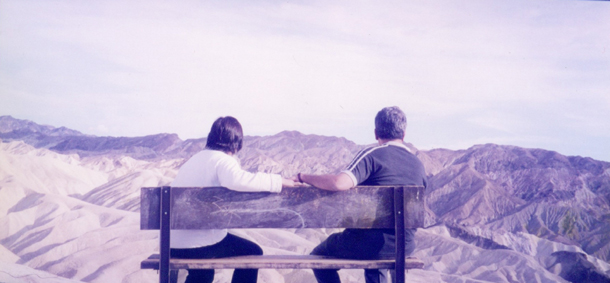|
|
|
One. Read this. Read it again. And again.
Two. Read this (but with caveats, però, etc.). Read it when you need to. Don't need to more than you need to.
Three. Remember this for later, when you need to. You don't need to yet. And you don't need to need to either, for a while. (See One, above.)
Four. Remember the first time you enountered what Larkin said in his Letters to Monica (via Sarah Herrington — thank you Sarah): I am always trying to ‘preserve’ things by getting other people to read what I have written, and feel what I felt.
Five. Remember what else he said: I feel the only thing you can do about life is to preserve it, by art if you're an artist, by children if you're not.
Six. Remember this. Remember to be where you are. You are still—always—the place where creation works on itself.
[nightingaleshiraz] [?]
[Via Giulio Cesare, Santa Marinella]
[sabato 27 agosto 2016 ore 17:17:17] [¶]
|
|

[nightingaleshiraz] [?]
[Via Giulio Cesare, Santa Marinella]
[martedì 23 agosto 2016 ore 09:05:09] [¶]
|
|
Last night we watched The Color Wheel. It may not have been the first time we watched a movie simply and exclusively because we'd read about it in The New Yorker (thank you Richard Brody), but then again it may have been. It was good. Good enough, in enough ways even, that today's ad bar to the right of my Yahoo! Inbox is all about popcorn poppers on Amazon Italy. (And now, fifteen consumer-report-reading minutes later, I have caved.)
This morning feels mid-Augustian at last, and so the air is cool enough that I can open up all the windows and listen to people of varying weights creak up and down the stainless steel rungs of a not-so-faraway pool ladder. That I can hear a catfight (but when I go out to see, cannot see it). That I can contemplate a walk to the second-closest grocery store. That I can consider coq au vin. (And now, five hours later I am, as Janet Malcolm put it fourteen years ago to the week, stunned by the suave deliciousness of what I had produced.)
And after all these afterwards, I come back and sit here with the grassy smell of shallot on my hands. The moonlit sound of the word ‘lardoon’ in my head (though I used pancetta). The taste of something indescribably excellent in my mouth.
And late summer still, everywhere.
This is the week we meet up with Nadeem. The week with lunch at Roscioli (where they still act like they are doing you a fucking favor by letting you pay them for their food; admittedly wonderful food, it is true, but the doing-you-a-fucking-favor attitude I could do without), pre-lunch at Cul de Sac, post-lunch atop Raphaël, and the kind of honesty that only a cabdriver can have, and only sometimes. (Thank you Cagliari Ventinove, you with the liberty-blue eyes and the favorite church of Sant'Ignazio. You with the heart of Roman gold.)
[nightingaleshiraz] [?]
[Via Giulio Cesare, Santa Marinella]
[sabato 13 agosto 2016 ore 11:11:39] [¶]
|
|
...at least according to David Denby, and me.
Thing #1. On the warring desires both to tell stories and to unravel them:
Kiarostami is something rare in movies. Like Godard or Resnais or the Bergman of “Persona,” he is a director possessed by a critical and disruptive view of conventional representation.
[...]
...in true modernist style, [he] is more interested in revealing the means by which fiction is made than in providing narrative pleasure. He wants to break the spell, to turn the attention, so to speak, on those of us who are enraptured by what he has shown. After all, we have been watching—and probably enjoying—the sight of a formidable man in despair. What does that say about our involvement in the tale?
Thing #2. On the right reasons, for waging such wars:
But he’s also a natural humanist. He’s not sentimental, yet he insists on the centrality of love, nature, art, manners—on all that makes life dignified and aesthetically and morally satisfying.
Thing #3. And on what we can learn, among the wreckage:
Of one thing there can be no doubt: the movie celebrates romantic enchantment and marriage. Elle studies two couples: a young bourgeois man and woman enjoying their wedding party in the square, and, later, an ancient and bent pair helping each other across the open space. She is moved both times. The couples are posed at the beginning and the end of stories. Marriage, after all, is itself a kind of narrative that you have to make up, develop, vary, and sustain as you go along. In the film’s final scene, Binoche stretches out on a bed and waits for her man to decide whether he will join her. I don’t much care whether the image is Iranian or Western, but it’s as luscious and as heartbreaking a moment as a moviegoer could wish for. And it forces us to keep the story going in our heads for a long time afterward.
[nightingaleshiraz] [?]
[Via Giulio Cesare, Santa Marinella]
[mercoledì 10 agosto 2016 ore 22:17:17] [¶]
|
|
|